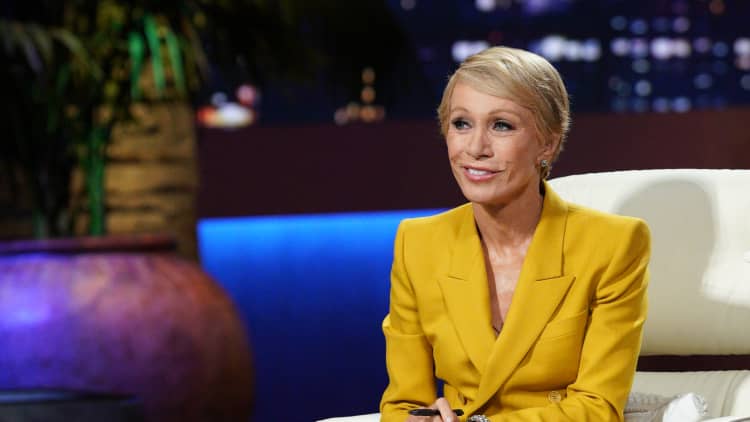Barbara Corcoran doesn't gravitate toward confident people.
Instead, she wants to work with people who have ideas and insecurities — because someone who knows what they don't know is more likely to succeed than someone who thinks they have all the answers.
"The more successful someone is, the more self-doubt they have, because that's what drives them," Corcoran, 74, said at Fiverr's Bridge the Gap webinar last month. "I've never met a secure person who was a stellar star."
Corcoran, an entrepreneur and longtime investor on ABC's "Shark Tank," cited herself an example. Despite selling her real estate firm The Corcoran Group for $66 million in 2001, she still sometimes wonders if the deal was "a fluke, a lucky break," she said.
That so-called imposter syndrome is a strength, Corcoran argued: It drives her to find gaps in her knowledge, and fill them with people whose skillsets balance her weaknesses. And on "Shark Tank," it leads her to seek out entrepreneurs who question themselves.
"I look for a [competitor] who's mostly insecure, because I know I've got myself a winner," Corcoran said. "They have the ambition. They're going to work twice as hard, which, I think, is the great upside to feeling like you're an impostor."
Sometimes, you need to identify people who act like they're confident, but are driven by an underlying insecurity, Corcoran said. Up to 82% of people experience self-doubt at some point in their lifetimes, found a 2020 meta-analysis published in the Journal of General Internal Medicine.
"Everyone's got self-doubt," Corcoran said.
It may even be a shared experience among "Shark Tank" investors. "All the Sharks have imposter syndrome," billionaire entrepreneur and investor Mark Cuban said at SXSW last year.
"[It's] because we've all failed so many times," Cuban, a co-star on the TV show, said. "I was broke sleeping on the floor. Barbara tells a story about being a waitress, being fired, not being taken seriously."
Some psychologists say self-doubt can be useful, as long as you know how to harness it.
"Imposter syndrome isn't a disease," Wharton organizational psychology professor Adam Grant tweeted last year, adding: "Doubting yourself doesn't mean you're going to fail. Feeling uncertainty is a precursor to growth."
If you feel unworthy of your success, you can combat those feelings by practicing affirmations, journaling and confiding in friends, Headspace mindfulness and meditation teacher Dora Kamau told CNBC Make It in February.
Visualization is another potentially useful tool. Close your eyes and imagine yourself performing adeptly at your next presentation, job interview or even difficult conversation, in as much vivid detail as you can.
It can help both confidence and performance: Tennis players serve more accurately after undergoing a series of imagery practices, a 2016 University of Amsterdam study found. Lt. Col. Nicole Miner, a former instructor at West Point, used to "conduct a mental rehearsal to make sure I was clear and firm" before confrontations, she told the New York Times in 2020.
That's Corcoran's antidote for self-doubt. Instead of comparing her weaknesses to other people's strengths, she sets small, intermittent goals and pictures herself acing them.
"The first day I opened my firm, I saw myself as a queen of New York real estate," Corcoran said. "But what [the visualization] provided for me wasn't a business plan — because I had no idea what a business plan even was — but a roadmap. I did everything in my power to match that image of who I saw myself as in the future."
This story has been updated to reflect that Nicole Miner held the rank of lieutenant colonel at the time of publishing.
Disclosure: CNBC owns the exclusive off-network cable rights to "Shark Tank."
DON'T MISS: Want to be smarter and more successful with your money, work & life? Sign up for our new newsletter!
Take this survey and tell us how you want to take your money and career to the next level.



